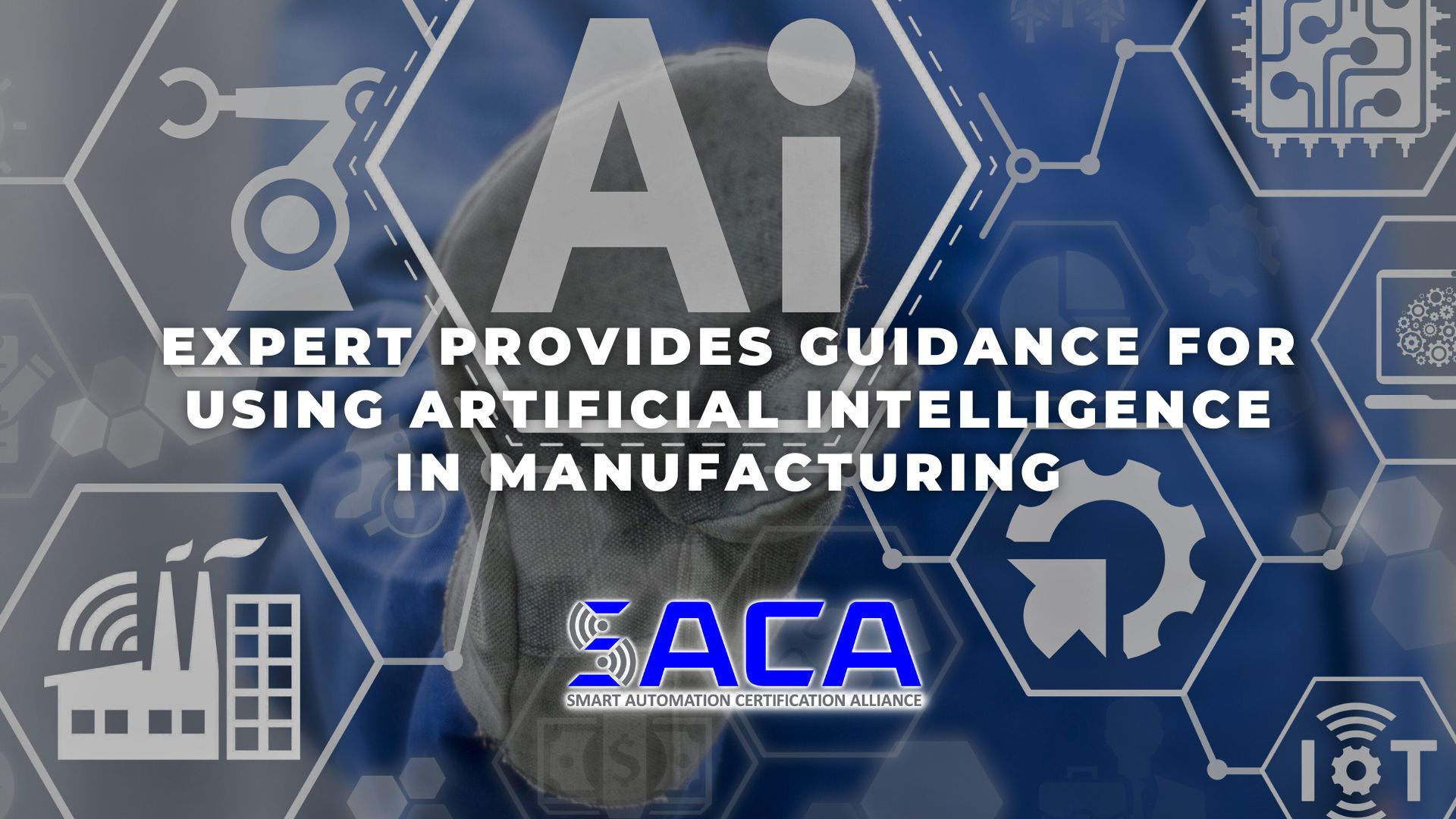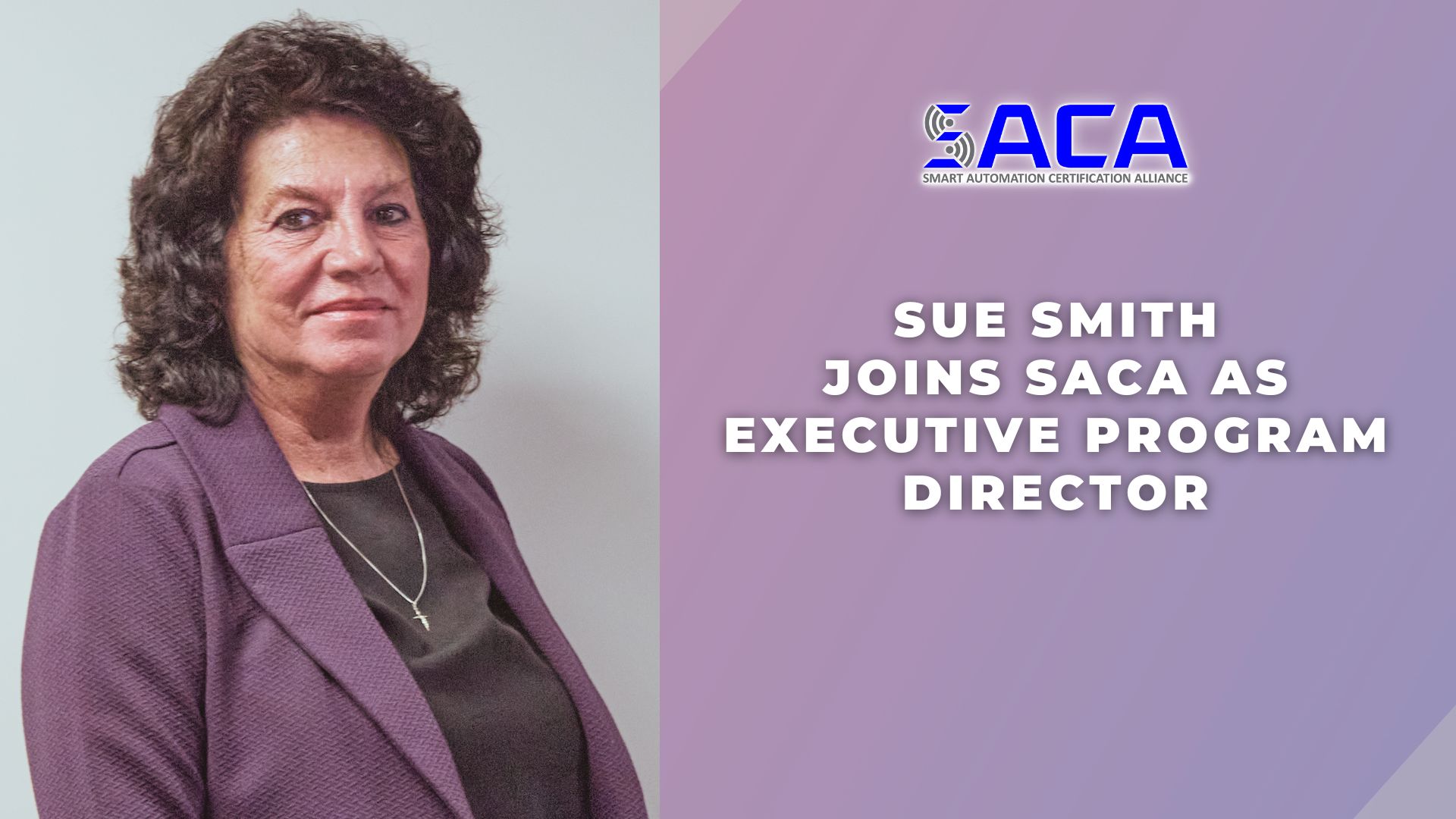Can AI Help Bridge the Manufacturing Skills Gap?
Unless you’ve been living under a rock over the course of the past year, then you’ve definitely heard of—and possibly even used—generative artificial intelligence (AI), such as ChatGPT. AI has really taken off over the past year or more, and it’s easy to see how useful it can be in areas like software programming and marketing.
But what about manufacturing? With an ongoing skills gap making the manufacturing labor market especially tight, manufacturers are searching for any way to increase productivity and efficiency. Could AI be a solution to their problems?
Those familiar with manufacturing already know that change usually happens incrementally. That’s a polite word for slowly, by the way. AI, however, is a technology associated with exponential, rapid change. Does such technology have a place in the world of manufacturing?
In a recent Chief Executive article, author Dan Bigman details his conversations with Pavan Muzumdar, chief operating officer of Automation Alley, Michigan’s Industry 4.0 knowledge center. According to Muzumdar, generative AI, like ChatGPT, can have a positive impact in manufacturing, if it’s implemented in the right way for the right reasons.
For example, Muzumdar recommends manufacturers “use gen AI to get started on something, use gen AI for ideation, use gen AI to kind of get you a little bit further ahead. But don’t use gen AI for completion.”
Muzumdar also advises that manufacturers “[b]e very cautious in using gen AI for factual information…whatever you ask AI to do, ask it so that the output that you get is in a chunk that you can independently verify. You can get great value, but make sure that you’re doing this ‘trust but verify’ type of approach.”
One successful application many manufacturers have found for AI is helping with old technologies. Many new manufacturing hires don’t know older programming languages, like COBOL, that might still be used in legacy systems. Generative AI can help new programmers decipher old code and write new code in languages they’re not familiar with.
Likewise, generative AI can help a new worker who understands general programming but not, for example, something specific to manufacturing, like CNC programming. According to Muzumdar, these workers “can kind of inductively learn how to do CNC programming just with the help of gen AI. But again, don’t trust it fully; learn how to use it and then verify that by making sure that you’re actually doing some physical tests to see that it’s actually giving you the results.”
Bigman believes that manufacturers should remember that “a gen AI like ChatGPT has digested almost every user’s manual and how-to guide, best practice guide on almost every machine that’s sitting on your shop floor.” Even if it can’t solve every one of your problems, it can accelerate understanding and speed along the process.
Muzumdar agrees, reminding that “[i]t’s not AI, it’s human plus AI. How can I empower my own staff to be much more open about it, knowing that it has limitations, but even things with limitations can have substantial value in making us much more productive.”
Even if AI does not replace workers, the workers of today and tomorrow will need to learn new skills to keep pace with the advanced technologies being implemented in the modern workplace. That’s why manufacturers are increasingly looking to hire highly skilled workers that can operate, maintain, troubleshoot, and repair advanced automation systems.
Unfortunately, due to the ongoing “skills gap” facing industries across the country, finding highly skilled workers remains a significant challenge. How can employers be sure that workers have the hands-on skills they need to succeed in the modern workplace? Today, more and more employers are looking for workers with industry-standard certifications that prove they have the skills needed.
For example, if workers possess a certification from the Smart Automation Certification Alliance (SACA), employers can feel confident they’ve already proven they have the knowledge and hands-on skills needed for working with advanced smart automation technologies. SACA has been hard at work collaborating with industry leaders to develop a wide variety of industry-standard certifications that will help employers find workers who possess the advanced connected-systems skills they need to take their businesses to the next level. Be sure to check out SACA and all it has to offer!
- Published in News, Posts, Technology
SACA Welcomes New Executive Program Director
The Smart Automation Certification Alliance (SACA) is pleased to welcome Sue G. Smith as its new Executive Program Director. Smith joined SACA in May 2024 after working at the highest levels within Indiana’s Ivy Tech Community College for more than 30 years.
During her tenure with Ivy Tech, Smith developed expertise in consulting; workforce and economic development; program and partnership development; and advanced and smart manufacturing. Most recently, she served as Vice President of Ivy Tech’s award-winning School of Advanced Manufacturing, Engineering, and Applied Science (AMEAS).
At Ivy Tech, Smith prioritized strengthening programs with an eye toward economic and workforce development. In particular, she worked extensively with employers throughout Indiana and neighboring states to ensure the programs in the School of AMEAS aligned with industry needs.
Under Smith’s leadership, Ivy Tech’s School of AMEAS grew to be a major economic development resource for Indiana. It also became the first college in the United States to develop and deliver a smart manufacturing degree called Smart Manufacturing Digital Integration (SMDI).
Ivy Tech’s SMDI degree was based upon SACA credentials that were vetted with manufacturing employers. The SMDI degree has been especially attractive to new industries looking to move into Indiana, since advanced automation skills are critical for cutting-edge technologies used in electric battery, electric vehicle (EV), semiconductor, and biopharmaceutical manufacturing.
The success of Ivy Tech’s School of AMEAS and its groundbreaking SMDI degree has captured the attention of not only other community colleges and universities around the country, but also organizations around the world. In fact, Smith recently delivered a keynote address at the European Educational Congress in San Sebastian, Spain, on smart manufacturing and the implementation of embedding SACA credentials stacking into programs.
SACA Executive Director Jim Wall is excited to see Smith use her experiences at Ivy Tech to help other organizations build similar programs. According to Wall, “SACA’s been growing pretty dramatically in the last two years, so we needed to bring in a nationally-known leader in education and industry. We’re very proud and fortunate to say that Sue Smith has come on board as our Executive Program Director.”
Wall notes that “Sue’s primary responsibility is going to be helping to grow SACA membership by being a resource for instructors and administrators across the country. She’ll also be working with some of our industry partners to help them develop pathways internally for their employees that can utilize SACA certifications.”
Smith says, “I’m really excited to be with SACA.” Reflecting on her journey from Ivy Tech to SACA, Smith notes that “as I rolled that [SMDI] out at Ivy Tech, I got tons of calls from other community colleges and organizations saying, ‘Hey, how did you do this? Can you do this for us?’ So, when this position came up, I thought, ‘Yeah, I think I can do that for other schools and other industries.’”
What does Smith hope to accomplish with SACA? “I’m trying to accomplish that sort of ‘high tide raises all boats,’ if you will. I’m trying to make this opportunity available for employers and for community colleges and universities in any state.”
About SACA
SACA sits at the forefront of the effort to certify students and workers who demonstrate the required knowledge and hands-on smart automation skills employers so desperately need. SACA’s certifications were developed in conjunction with industry partners who could speak from experience about their needs when it comes to workers able to work alongside a variety of advanced automation technologies.
SACA offers a wide variety of certifications in popular industrial skill areas, including certifications at the Associate, Specialist, and Professional level. For those wishing to focus on building a strong foundation of skills employers need, SACA also offers many micro-credentials that allow students and workers to add certifications as they master new areas.
For workers, SACA certifications can help market their smart automation skills to potential employers. For those employers, SACA certifications represent confirmation that a worker has the skills to hit the ground running in the workplace. To learn more about Industry 4.0 certifications and how SACA can help both future workers and industrial employers begin the task of bridging the Industry 4.0 skills gap, contact SACA for more information.
- Published in News




